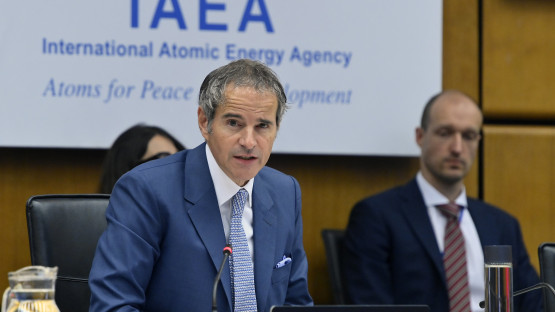In his opening statement to the IAEA’s Board of Governors, Director General Rafael Mariano Grossi said, “We took a step in the right direction” with regards to the situation around Zaporizhzhya Nuclear Power Plant (ZNPP) in Ukraine. Last week, the Director General briefed the United Nations Security Council and received support for the five basic principles he established to prevent a nuclear accident at ZNPP, which includes that there should be no attack of any kind from or against the plant.
The five basic principles aim to prevent and avoid a nuclear accident with serious radiological consequences, he told the 35-member Board. “We hope to continue our work towards the full stabilization of the situation there.” Mr Grossi’s full statement is available here.
“Diplomatic and technical engagement will continue with all sides, and we hope to count on your full support in doing that,” he said.
The IAEA has been monitoring the situation and assisting Ukraine since the conflict began in February 2022. There have been 12 expert missions to Ukraine, of which Mr Grossi led seven of them, including two to ZNPP. In addition to ZNPP, IAEA experts maintain an ongoing presence at Ukraine’s other nuclear power plants – Khmelnitsky, Rivne and South Ukraine – and the Chornobyl site.



